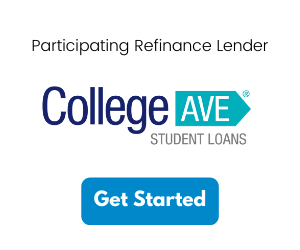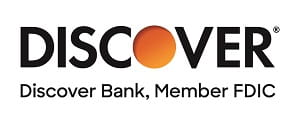-
Compare Lenders
featured articles
featured articles
-
Scholarships
featured articles
featured articles
featured articles
featured articles
-
Plan for College
featured articles
featured articles
featured articles
featured articles
featured articles
featured articles
-
Student Loans
featured articles
featured articles
featured articles
- Filing the FAFSA 2025-2026: A Simple Guide for Students
- FAFSA FAQ - Your FAFSA Questions Answered
- The complete guide to federal undergraduate student loans
- What are Federal Parent PLUS Loans and How to Apply
- Financial Aid for Graduate School
- Compare Subsidized and Unsubsidized Student Loans
- View All Articles >
featured articles
featured articles
-
Credit Cards
featured articles
featured articles
featured articles
-
Money Management
featured articles
featured articles
featured articles
featured articles
featured articles
featured articles
featured articles
- Student LIFE Blog
Edvisors (“Edvisors Network, Inc.”) provides independent advertising-supported platforms for consumers to search compare and apply for private student loans. Loan offers from participating lenders that appear on our websites are not affiliated with any college and/or universities, and there are no colleges and/or universities which endorse Edvisors’ products or services. Lender search results do not constitute an official college preferred lender list. Edvisors receives compensation from lenders that appear on this site. This compensation may impact the placement of where lenders appear on this site, for example, the order in which the lenders appear when included in a list. Not all lenders participate in our sites and lenders that do participate may not offer loans to every school.
Edvisors is not a lender and makes no representations or warranties about your eligibility for a particular loan or financial aid. Lenders are solely responsible for any and all credit decisions, loan approval and rates, terms and other costs of the loan offered and may vary based upon the lender you select. Please check with your school or lender directly for information related to your personal eligibility.
Edvisors has endeavored to provide accurate information. However, the results provided by lenders are for illustrative purposes only and accuracy is not guaranteed, as such, Edvisors assumes no responsibility for errors or omission in the information provided.
Thank you for your interest in Edvisors' 2020-2021 Guide to Filing the FAFSA.
Please complete the form below to access your free copy.
Thank you! Click here to download your free FAFSA Guide.
Enter your email below to receive your Student Loan Handbook from Edvisors.
Please check your email for the Student Loan Handbook.
Student LIFE - The Edvisors Blog
Student LIFE covers the latest information on finance and education. Learn about timely news, developments and perspectives relating to FAFSA, scholarships, student loans, financial aid and other aspects of planning and paying for college as well as budgeting, saving and other money management issues of concern for young adults. This blog has a practical focus, providing insights and advice.
Find Your Topic Here
The Supreme Court may reconsider the Chevron doctrine, which allows federal agencies to interpret ambiguous laws, as long as their interpretation is reasonable. Altering this doctrine could affect numerous federal regulations and policies. The Chevron doctrine has been crucial for rulemaking in federal agencies. For example, the U.S. Department of Education, which creates regulations and policies for the federal student aid programs established by the Higher Education Act of 1965.
Crafting an exceptional personal statement requires a blend of introspection and strategic storytelling. Ensure your story reveals something significant about your values and motivations. The ultimate goal is to present a nuanced, multifaceted view of who you are, making your application not just another file in the pile but a memorable and intriguing read.
If you're struggling in school, you may encounter financial repercussions in addition to academic ones. It's crucial to familiarize yourself with your school's policies to understand your options and avoid the financial consequences of failing.
Artificial Intelligence (AI) is revolutionizing a number of industries and often taking over tasks traditionally performed by humans. However, it's important to note that not all jobs can be done by AI today, take the skilled trades for example, these jobs involve a degree of adaptability and personal judgment that is inherently human.
Starting July 1, 2024, new regulatory changes will limit a school's ability to withhold transcripts due to unpaid balances.
New graduates are finding it harder than ever to land their first job. Several reports have cited that employees are hesitant to hire college grads. It seems new many graduates are making rookie mistakes that can be easily fixed. With a little awareness and coaching, we can turn around this issue and get those grads working.
The SAVE Plan is currently facing legal challenges, led by two challenges from the Attorneys General from Kansas and Missouri. These challenges have contended that the U.S. Department of Education has overstepped its authority yet again.
Gen Z is often criticized in the media for a lack of work ethic and company loyalty. Early-career job hopping is mischaracterized as a sense of entitlement or wanting to skip the first few rungs of the corporate ladder out of boredom or for a quick salary grab. But the driving forces behind this movement can’t solely be blamed on the employees themselves.
Considering the recent issues surrounding the FAFSA roll-out, Secretary of Education Miguel Cardona has announced a comprehensive internal review of the U.S. Department of Education's Office of Federal Student Aid (FSA). Even the Secretary has acknowledge this initiative will not help student’s struggling today, the goal is to help students in the future.
Copyright © 2025 by Edvisors.com. All rights reserved.










